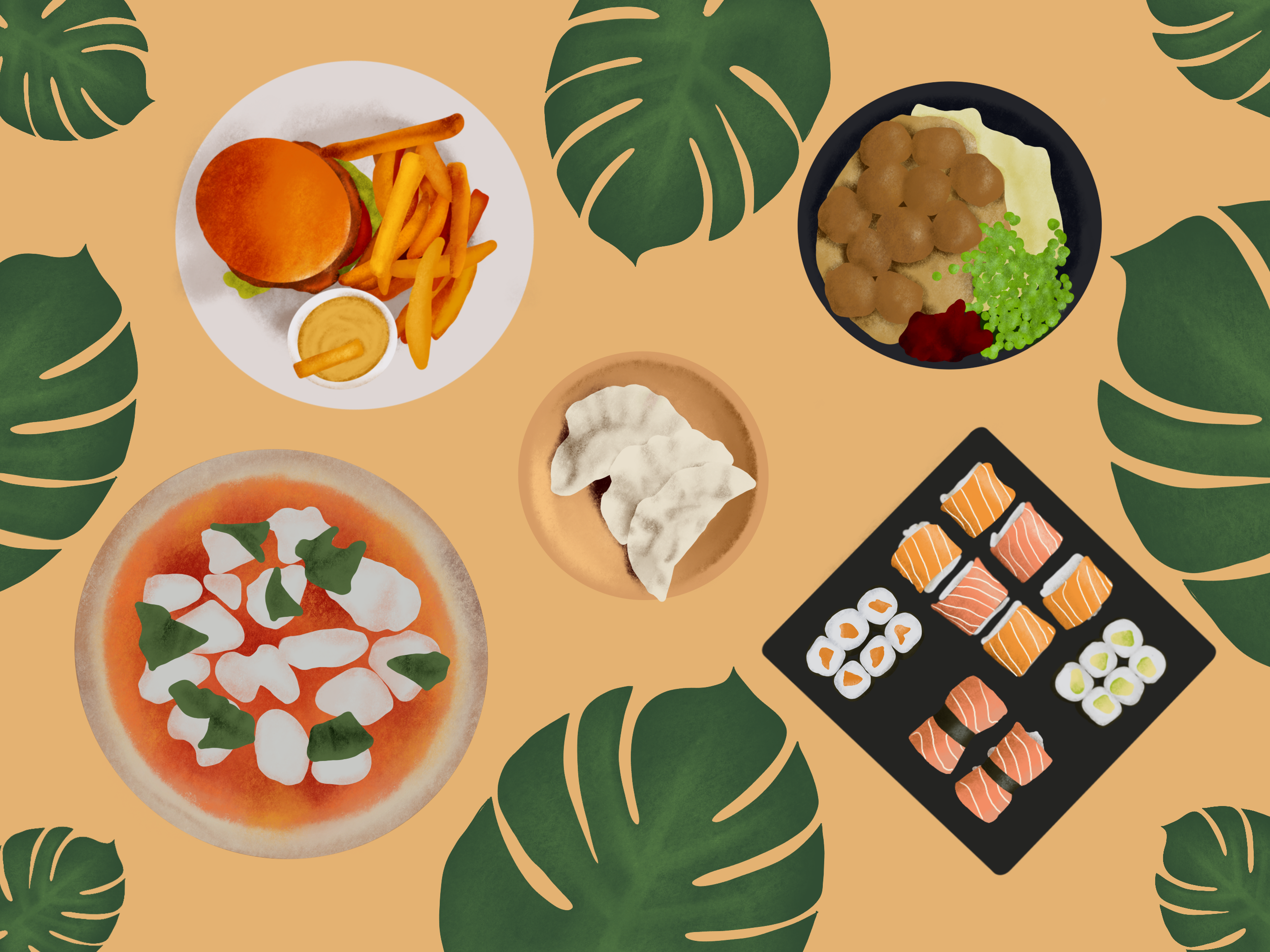Jönköping University is a very diverse campus with students from all over on. Because the university is so big with five different school faculties on one campus it can be hard to connect with other students on campus outside of the class, especially if you are new and don’t know that many people. A good way to socialize and meet new people is through attending different school activities. IAC is the school’s integration and activity committee.
Sandra: What is IAC?
Sammy: IAC is the integration and activity committee, and they organize trips and general activities, bowling night and they make sure that the people that arrive here, doesn’t matter if you’re Swedish or if you’re international, but mostly international just have a good time and are able to integrate into the culture.
IAC recently hosted the food safari event on September 27th. During this event, I spoke to Sammy who is a member of IAC and helped me understand what this event is and what it means.
Sandra: What is Food Safari?
Sammy: Food Safari is the event of going to someone’s kitchen, you enjoy a meal, an appetizer, main dish, or dessert, and then you go to another accommodation and someone else cooks something for you, but on a more emotional level it’s just a way to get to know at least 12 people in a single night. Additionally, you get to taste some other cultures and meet some people you might not have met during any other events.
In other words, this event is an amazing opportunity to meet new people while also getting to try new foods that you perhaps have not eaten before. It also does not matter which school faculty you belong to, this event is open for everyone to join regardless.
Sandra: How does food safari work?
Sammy: You sign up, you say I want to make the appetizer, main dish, or dessert. So, when you sign up you sign up for an appetizer, main dish, or dessert. Then you get appointed to one of these three roles. If you get appointed the appetizer, people will start at your accommodation. You sign up as a pair, two teams come to you, so four people and you make an appetizer. Then you go to the main dish which is assigned to someone else. So, you leave your accommodation and go to a different accommodation and there are two more groups there. The two groups that were just with you also go to new accommodations, they don’t come with you, that’s how you meet 12 people in a night.
Sandra: How many groups signed up?
Sammy: There are 60 groups and they all go to three different accommodations and as one group you meet 6 new groups and at every accommodation you meet two new groups.
Sandra: Do you cook your own food?
Sammy: Yes, everyone is supposed to cook their own food.
A fun fact that I learned at this event was that you do not know what you are eating beforehand. This is a part of the mystery and fun of this event. You write down any allergies that you may have and it will be arranged so the groups that are assigned make food that you can eat as well.
Sandra: Where have you been in Jönköping so far for the Safari?
Sammy: Everywhere, we go to each other’s homes.
Sandra: Are there different cultural foods?
Sammy: It all depends on what you want to cook, we for example cook something Vietnamese, although neither of us is Vietnamese. I think a lot of people tend to stick to their own nationalities with what kind of food they cook, which is actually really nice.
Sandra: You said that people usually stick to their own nationality and cook their own food. Why do you think it’s important to try different foods from other cultures?
Sammy: I think the main part of us trying other people’s food is not really trying the food but it’s the people who make it for you from their culture. Meeting the people that make the food is the most important part, because it’s not important if you’re ordering food from different cultures, it becomes important when people start to cook for you from different cultures. I think it’s a good way to translate for the people who are cooking their feelings and culture into food, and they might have their own story.
Sandra: Are there any educational or cultural aspects tied to the food safari, such as learning about the origins of certain dishes or culinary traditions?
Sammy: Definitely, I mean like I said – food is such a big part of culture, so sharing the food of your culture automatically teaches someone about your culture, and it brings out stories in people that are relevant to their culture.
Sandra: Are there any additional activities or entertainment that complement the food safari experience for attendees?
Sammy: We would say no additional activities needed just talking and eating, it’s only an hour and a half.
During the interview, I also spoke to Alessandro who was Sammy’s partner in this food safari.
Sandra: What does food safari mean to you?
Allesandro: Getting people to come together.
Sammy: I really like cooking food for people and getting food cooked for us, it’s a very mutual experience and that’s kind of what it means to us.
Allesandro: It’s like having friends over for dinner.
Sammy: We like to cook food and like food being cooked for us, it’s like having friends over.
Sandra: What is the most fun part of being part of this event?
Sammy: All the people making food for you, I like other people making food for me the most.
Sandra: What do you think are some important takeaways or learnings for participants in this event?
Sammy: General habit of inviting people for dinner that are not necessarily good friends of yours, and might become friends during dinner. Sharing your hospitality with people you don’t know that much.
Sandra: How can someone be involved in future Food Safaris or events from IAC?
Sammy: Follow us on Instagram (@IACJKPG).
Writer: Sandra Hanna-Mikha


